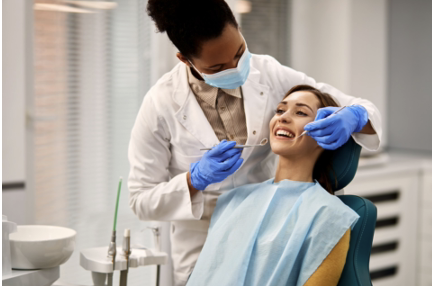
Good oral hygiene is crucial for maintaining healthy teeth and gums, and it plays a significant role in your overall health. While most people are aware of basic dental care practices like brushing and flossing, there are additional tips and strategies that your family dentist wants you to know. These can help prevent dental problems before they start and ensure a healthy smile for life.
1. Brush Effectively, Not Aggressively
While brushing your teeth twice a day is a cornerstone of good oral hygiene, how you brush is equally important. Use a soft-bristled toothbrush and gentle, circular motions to clean your teeth. Brushing too hard or using a hard-bristled brush can damage the gums, root surface, and tooth enamel. Spend at least two minutes during each brushing session, covering all surfaces of your teeth.
2. Don’t Neglect Your Tongue
Plaque can also build up on your tongue, leading to bad breath and other oral health problems. Gently brush your tongue every time you brush your teeth. For a deeper clean, consider using a tongue scraper, which can remove bacteria more effectively than a toothbrush.
3. Floss Daily
Flossing is not just for removing food particles between your teeth; it also reduces plaque, stimulates the gums, and helps lower inflammation in the area. Floss at least once a day to reach the areas where your toothbrush can’t. If you find flossing difficult, try using a floss holder or interdental brushes, which can be easier to handle.
4. Use Fluoride
Fluoride comes from an element in the earth’s soil called fluorine and is proven to prevent cavities as well as repair early tooth decay. Make sure your toothpaste and mouthwash contain fluoride. Check the labels on dental care products to ensure they offer fluoride protection.
5. Maintain a Healthy Diet
What you eat impacts your dental health. Foods high in sugar or acid can erode tooth enamel and promote tooth decay. Eat a balanced diet and limit sugary snacks and drinks. Crunchy fruits and vegetables, like apples and carrots, can help clean your teeth naturally.
6. Stay Hydrated
Water continues to be the best beverage for your overall health — including oral health. Drinking water helps wash out some of the negative effects of sticky and acidic foods and beverages in between brushes. Drink fluoridated water, it has the added benefit of helping to prevent tooth decay.
7. Regular Dental Checkups
Visit your dentist at least twice a year for professional cleanings and checkups. These visits are crucial for detecting early signs of dental problems and getting a thorough cleaning that you can’t achieve at home. If you have a higher risk of dental problems, you might need more frequent visits. When you notice oral health issues, such as tooth sensitivity or bleeding gums, pay attention to these early signs. Most of us ignore them at first, hoping the discomfort will go away or giving our teeth a little extra TLC. However, problems with teeth rarely improve without professional help. They’re usually caused by underlying issues like tooth decay or bruxism (teeth grinding). Give the new sensations time (this article by JS Dental Lab discusses how long teeth grinding pain can last), and don't hesitate to schedule an appointment if you notice any ongoing issues.
8. Consider Dental Sealants
Dental sealants can provide a protective shield over the enamel of your back teeth, where decay often starts. They are especially beneficial for children but can be effective for adults too. Ask your dentist whether sealants could be a good option for you or your children.
9. Stop Smoking
Smoking harms the body’s immune system, which makes it difficult for the body to heal tissues, including those in the mouth. Smokers are at a higher risk for gum disease, and smoking can lead to tooth staining, bad breath, and other oral health issues. Seek support from a healthcare provider to find the best methods to help you quit.
Maintaining good oral hygiene is a lifelong commitment and involves more than just brushing and flossing. By incorporating these tips into your daily routine, you can ensure better dental health and avoid costly and painful dental procedures in the future. Always consult with your family dentist to tailor an oral hygiene plan that’s best suited for your needs.